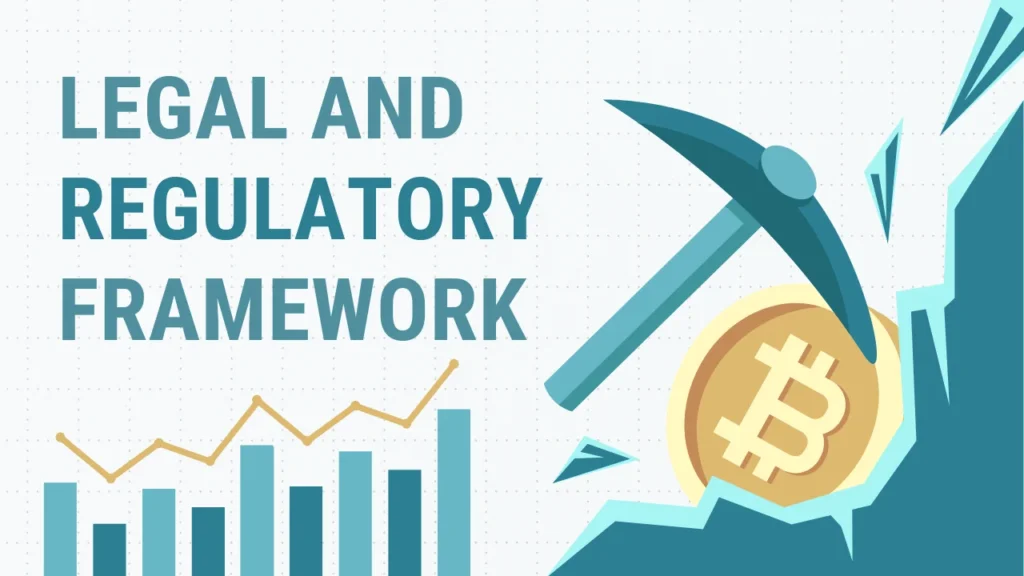Bitcoin mining has become a worldwide phenomenon in the digital age, and India, with its huge population and growing tech industry, is just like any other country. This investigation into Bitcoin mining in India sheds light on the opportunities, threats, and intricacies of the crypto scene in the nation. This guide is designed to provide crypto-curious, investors, and enthusiasts a clear picture of how Bitcoin mining works in India, including the legalities, practical considerations, and operations involved.
Bitcoin Mining

To put it simply, Bitcoin mining is what creates new bitcoins and puts them into circulation. The blockchain ledger relies on it for its upkeep and development. In order to mine, one must solve complicated cryptographic puzzles, which demands a lot of computational power and, by extension, a lot of electricity. This digital endeavor is both an essential component of the Bitcoin ecosystem and a potentially profitable endeavor for miners because they are rewarded with bitcoins for their efforts.
Legal and Regulatory Framework

Legal Status of Bitcoin Mining
Similar to the general murkiness around cryptocurrencies in India, Bitcoin mining in the country is governed by a complex web of regulations. Bitcoin and other cryptocurrencies are legitimate and acknowledged as goods, but they are not yet used as money. This difference is vital because it shows that mining and trading are legal, but that there are restrictions, especially regarding taxes and following regulations.
Taxation and Regulatory Compliance
Gains from the sale of cryptocurrencies in India are subject to a flat 30% tax. The government’s strategy to control the economic activities linked to digital currencies without outright banning them is demonstrated by this tax regime. For Bitcoin miners, this means adapting to a world where profits are heavily taxed, which necessitates careful planning of mining operations and investments.
Legal Uncertainties in Mining
In 2020, the Indian Supreme Court reversed a prior prohibition on financial institutions’ use of cryptocurrencies, but the legal status of Bitcoin mining is still unclear. Miners must walk a fine line, balancing their operations within an unclear legal framework, because there are no particular regulations addressing mining activities.
Challenge of ASIC Mining Import Restrictions
Regulations have made it difficult to import ASIC (Application-Specific Integrated Circuit) devices, which are necessary for effective Bitcoin mining. Import bans and restrictions have made it more difficult for miners to get their hands on cutting-edge mining equipment, which is a major setback for their efforts to increase mining productivity and profits.
Operational Challenges and Solutions
Addressing Problems with Power Supply and Energy Consumption
Mining Bitcoin requires a lot of energy, which is a big problem in countries like India where there are often problems with the power grid. Power availability has been unpredictable, and energy prices have been on the rise. In order to keep their operations running, miners have had to get creative, frequently turning to “jugaad”—a method of problem-solving that is specific to India.
Efficient Mining Technologies
Indian miners are looking into alternative technologies and methods more and more as a response to the problems caused by ASIC import restrictions and the high energy consumption of mining operations. To achieve these goals—lower costs and less environmental impact—miners are looking into renewable energy sources to power their operations and upgrading to more energy-efficient mining gear.
Regulatory Uncertainties
Miners need to be cautious and plan ahead because there are no clear regulations that pertain specifically to Bitcoin mining. It is crucial to stay informed about possible changes to the law, reach out to mining communities for advice and support, and implement operational strategies that can be easily adjusted in order to navigate this uncertain landscape.
Indigenous Innovations and Technologies
Bitcoin miners in India have resorted to local innovations and adaptive technology in the face of obstacles to traditional methods. In spite of many challenges, the Bitcoin mining community in India has managed to prosper, and this section explores the innovative approaches and tactical adjustments that have contributed to this success.
Jugaad for Mining Efficiency
An essential component of the Indian cryptocurrency mining industry is jugaad, which means to solve problems creatively and adapt quickly in response to unexpected challenges. In order to prolong the life of their equipment and keep it running at peak performance, miners in India have cleverly devised makeshift cooling solutions to combat the damaging impacts of the country’s climate on mining hardware.
Renewable Energy Sources
Renewable energy is attracting more and more attention from Indian miners as a viable alternative to conventional energy sources, which are both expensive and harmful to the environment. Solar power has gained popularity as an alternative due to India’s advantageous geographical position. To help with sustainable mining practices and cut operational costs, some miners have set up solar-powered mining farms.
Community Networks and Knowledge Sharing
Within the framework of Bitcoin mining in India, the significance of community cannot be emphasized enough. Knowledge sharing, problem solving, and mutual support can all take place in online forums, social media groups, and in-person meetups. Both newcomers and veterans rely on these networks to help them understand the ins and outs of mining and keep up with regulatory and market news.
Business Models and Partnerships
Innovative business models have arisen to address the challenges of high operational costs and initial investments. Pools of miners who pool their computing power to improve their odds of solving blocks and collecting rewards are becoming more popular. Also, more and more renewable energy companies are teaming up with miners, which is great news for both industries because it creates a win-win situation.
Future of Crypto Mining in India
There will be obstacles, but Bitcoin mining in India still has a bright future. With its entrepreneurial spirit, technological prowess, and rising popularity of cryptocurrencies, India has all the makings of a world leader in cryptocurrency mining. With the changing legal and regulatory landscape, miners are hoping for more clarity and support, which could lead to a more robust and long-lasting crypto ecosystem in India.
FAQs
Is Bitcoin mining legal in India?
Although there are no hard and fast regulations controlling Bitcoin mining in India, the practice does not fall into a regulatory gray area.
What are the tax implications for Bitcoin mining in India?
Capital gains from cryptocurrency transactions, such as Bitcoin mining income, are subject to a 30% tax in India.
Can I import ASIC miners to India for Bitcoin mining?
One obstacle that Indian miners face is the regulatory scrutiny and potential restrictions that come with importing ASIC miners.
How do Indian Bitcoin miners deal with power supply issues?
When faced with power outages, miners frequently “jugaad” by turning to alternative energy sources or installing backup generators.
What is the future of Bitcoin mining in India?
A combination of factors, including rising interest in cryptocurrencies, new technology, and possible regulatory clarifications, makes the future seem bright, despite the present difficulties.
Also Read: Bitcoin Education in India [2024]
Conclusion
Bitcoin Mining in India exemplifies the resourcefulness and determination of Indian businesspeople and techies. The revolutionary potential of blockchain technology and the promise of digital currencies propel the community to keep growing as it navigates the complexity of regulatory frameworks and operational hurdles. Unleashing Bitcoin mining’s full potential and establishing India as a cryptocurrency powerhouse will require clear regulations, technological advancements, and improved infrastructure as the country progresses.

Timothy Jensen is an expert writer who specializes in the world of cryptocurrencies, including blockchain technology and Bitcoin. He has a passion for explaining complex topics in an easy-to-understand way. Timothy’s work aims to demystify the digital currency landscape for his readers.

